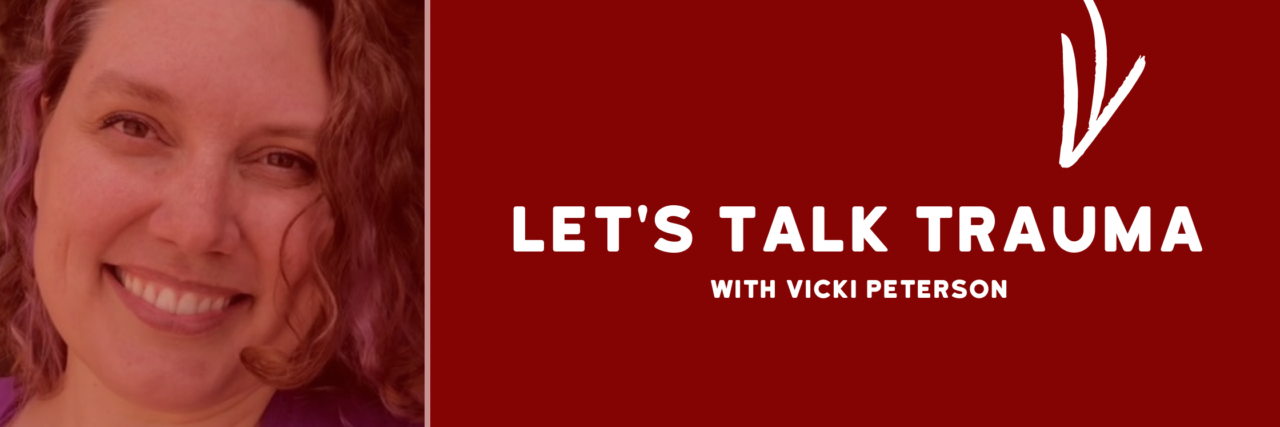Let's Talk Trauma: The Invisible Trauma Known as Childhood Emotional Neglect
Editor's Note
If you have experienced emotional abuse, the following post could be potentially triggering. You can contact the Crisis Text Line by texting “START” to 741741.
Childhood Emotional Neglect (CEN) is a type of abuse that can hide in plain sight. Unlike physical abuse or neglect, it’s extremely difficult to provide “evidence” to others that it’s taking place. Therefore, it’s unlikely that a child who experiences this form of abuse will get the outside help that they need. A child can be emotionally neglected in several ways, but two common ones are being completely shut down or ignored, as if their feelings are never considered or allowed, or when an adult overwhelms a child with their own dysregulated emotions, there’s no room for the child to have any emotional real estate in the family.
It’s common for adult children of childhood emotional neglect to go through their entire childhood and much of their adult lives not being able to pinpoint why their relationship with a parent or caregiver is “off,” “strained” or “not connecting.” Perhaps their caregivers didn’t say anything cruel about them, but they also didn’t say anything positive about them. Maybe they grew up walking on eggshells or waiting for a caregiver to be in a “better mood.” Perhaps they knew as children to hide any significant, emotionally charged events in their lives from their parents because their reaction would make things more complicated. Perhaps, knowing they would not be acknowledged at home, they put an excessive amount of value on friendships or romantic relationships, prematurely attaching themselves to others. CEN survivors are often prone to toxic relationships with manipulative or emotionally unavailable people because, even though they don’t like it, it’s a pattern that is familiar to them.
Due to the wound itself, it can be difficult for CEN survivors to pinpoint the issue. Adult survivors of CEN may automatically expect other people to be emotionally unavailable or might expect their friend or partner to “freak out” if they bring up an issue of any size or type. They may feel anxious or fearful that they’re bothering people with their “problems” whenever they communicate a need. They may not be able to identify their own emotional needs or be so used to being shut down that they don’t “go there” at all. When an adult survivor of CEN experiences conflict in a relationship, it’s extremely stressful, especially because, in their experience, they expect a disproportionate reaction, either dismissive or overly upset, in response. Sometimes, CEN survivors risk losing their sense of identity or autonomy, because as children, they were never allowed to have one. Perhaps they are agreeable peacemakers who “don’t care” if they get the short end of the stick all the time. Except, they do. They’ve just lost touch with that part of themselves that expresses what they want, and eventually, they grow resentful.
Children who experience emotional neglect may have a parent or caregiver dealing with grief, addiction, mental illness or a personality disorder that makes it difficult for them to give their child what they need, even though they want to. It’s important for parents who may fall into these categories to seek lots of support via counseling, coaching, therapy or mentoring, for themselves and for the child, so that they can learn to better identify emotional needs and manage them.
A smaller (but significant) number of emotionally neglected children have parents or caregivers who lack empathy and are not interested in any sort of growth. A lot of emotionally rooted trauma can build up over the course of childhood, creating what can feel like an insurmountable situation as an adult. However, no matter how old you are, it’s never too late to address and heal childhood emotional neglect.
Childhood emotional neglect is a relational trauma, which means much of the healing process is rooted in identifying and maintaining safe, emotionally healthy relationships elsewhere. Therapists who specialize in trauma recovery can be immensely helpful in helping CEN survivors identify their blind spots. CEN survivors may need to limit or eliminate contact with emotionally neglectful parents in order to heal and have the space to process their trauma and establish new patterns of behavior. By re-casting the roles people play in their lives, CEN survivors can reclaim their “lost” emotions, better regulate them and feel emotionally safe in the company of loved ones who have established trust.
Lead image via contributor

